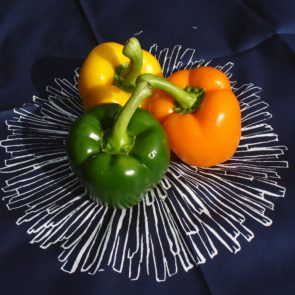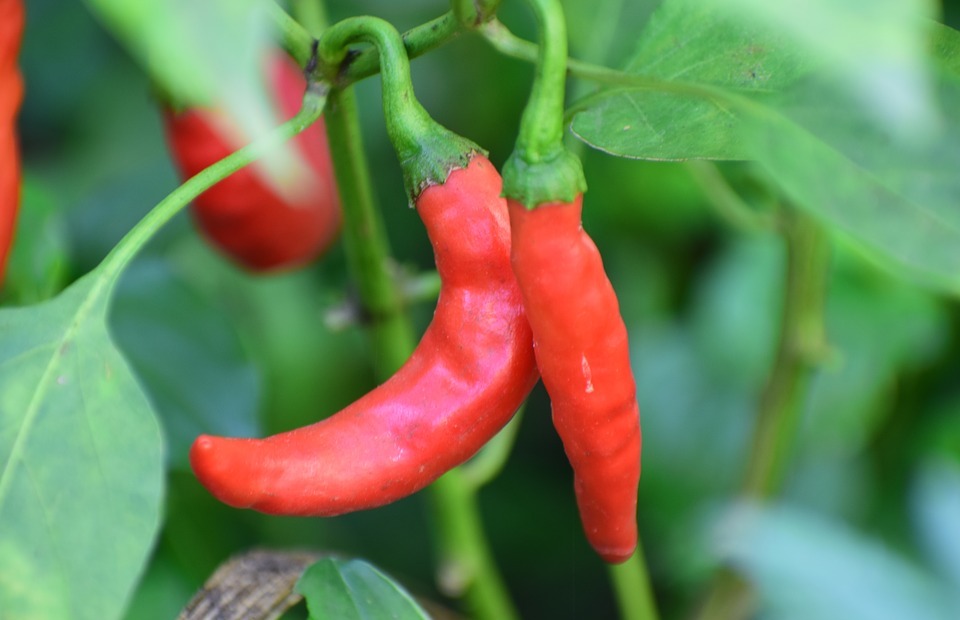This comprehensive guide will explore the world of bell peppers and their suitability for rabbit consumption. We will delve into the nutritional value of these vibrant vegetables, examine potential risks and benefits for your furry companion, and provide detailed advice on incorporating bell peppers into your rabbit's diet.
Part 1: Understanding the Nutritional Value of Bell Peppers

1.1. A Spectrum of Essential Vitamins
Bell peppers are a treasure trove of essential vitamins, contributing significantly to a rabbit's overall health and wellbeing. Key vitamins include:
- Vitamin C: A powerful antioxidant crucial for maintaining a robust immune system, healthy connective tissues, and wound healing.
- Vitamin A: Essential for maintaining healthy vision, promoting skin health, and supporting immune function.
- Vitamin B6: Plays a vital role in brain development, red blood cell production, and energy metabolism, contributing to a rabbit's overall vitality.
1.2. Minerals for Optimal Functioning
Beyond vitamins, bell peppers offer a range of minerals that contribute to various bodily functions:
- Potassium: Essential for regulating blood pressure, facilitating muscle contractions, and supporting nerve function.
- Magnesium: Crucial for muscle and nerve function, blood sugar control, and energy production. It plays a vital role in maintaining a healthy heart and bones.
- Iron: Key for carrying oxygen throughout the body, supporting red blood cell production, and facilitating energy production.
1.3. Antioxidants for Cellular Protection
Bell peppers are packed with antioxidants that protect cells from damage caused by free radicals, which can contribute to aging and disease:
- Capsaicinoids: Found in bell peppers, these compounds have anti-inflammatory and pain-relieving properties, potentially benefiting rabbits with joint issues.
- Quercetin: This powerful antioxidant helps protect cells from damage and may have anti-allergic and anti-cancer effects, contributing to a longer, healthier life.
Part 2: Can Rabbits Eat Bell Peppers?

2.1. The Verdict: Yes, but with a Measured Approach
Yes, rabbits can eat bell peppers. However, moderation is essential. Bell peppers are not a staple food for rabbits and should be offered as occasional treats.
2.2. The Benefits of Bell Peppers as Treats
When provided in moderation, bell peppers can offer a few benefits for rabbits:
- Vitamins and Minerals: Bell peppers can provide a boost of essential nutrients to supplement a rabbit's regular diet, contributing to overall health.
- Dietary Fibre: Bell peppers contain a small amount of fibre, which can aid in digestion and maintain gut health, particularly for rabbits prone to digestive issues.
- Enriching Variety: Adding a bit of novelty to a rabbit's diet can stimulate their appetite, prevent boredom, and encourage them to eat a variety of foods.
2.3. Potential Risks Associated with Bell Peppers
While bell peppers can be a healthy treat, it's crucial to be aware of potential risks associated with excessive consumption:
- Digestive Upset: Overindulging in bell peppers can cause digestive upset, leading to bloating, gas, and diarrhoea.
- Sugar Content: Bell peppers contain a moderate amount of sugar, which can be harmful in excess for rabbits. This is particularly relevant for rabbits prone to obesity or diabetes.
- Pesticide Residues: It's vital to choose organic bell peppers or wash conventional ones thoroughly to remove pesticide residues. Pesticides can be toxic to rabbits.
Part 3: Choosing the Right Bell Peppers
3.1. Prioritising Organic Options
Whenever possible, opt for organic bell peppers. This minimises exposure to pesticides and ensures a safer treat for your rabbit.
3.2. Freshness Matters
Choose fresh bell peppers over wilted or damaged ones. Fresh bell peppers will have the highest nutritional value and are less likely to cause digestive issues.
3.3. The Colourful Variety
Offer a variety of colours, as each colour offers a unique nutritional profile. Experiment with red, yellow, orange, and green bell peppers to provide a more diverse experience.
Part 4: Preparing Bell Peppers for Rabbit Consumption
4.1. A Thorough Wash is Essential
Wash bell peppers thoroughly under cold running water, ensuring that all traces of dirt and pesticides are removed.
4.2. Remove Seeds and Core
Remove the seeds and core of the bell pepper, as these parts are difficult to digest for rabbits and can cause intestinal blockages.
4.3. Bite-Sized Pieces for Easy Consumption
Cut the bell pepper into small, bite-sized pieces to make it easier for your rabbit to eat and prevent choking hazards.
Part 5: Serving Size and Frequency: Moderation is Key
5.1. Treat, Not Staple
Bell peppers should be given as an occasional treat, not as a staple food in a rabbit's diet.
5.2. Start Small and Monitor
Introduce bell peppers gradually, starting with a very small amount (about 1/4 inch). Monitor your rabbit's reaction carefully for any signs of digestive upset.
5.3. Once or Twice a Week
Offer bell peppers once or twice a week at most. Overfeeding can lead to digestive issues and potential health problems.
Part 6: Exploring Different Bell Pepper Varieties
6.1. Green Bell Peppers: A Milder Option
- Nutritional Content: Green bell peppers are rich in vitamin C, vitamin A, and potassium, providing a valuable nutritional boost for rabbits.
- Milder Flavour: They have a milder flavour than other varieties, which may be appealing to rabbits with more sensitive palates.
6.2. Red Bell Peppers: Sweetest of the Bunch
- Sweetness Factor: Red bell peppers are the sweetest variety, containing more sugar than other colours. Offer these in limited quantities to avoid potential sugar overload.
- Nutrient Density: They are packed with vitamin C, vitamin A, and antioxidants, making them a nutritious treat when given in moderation.
6.3. Yellow Bell Peppers: A Moderate Approach
- Moderate Sugar Content: Yellow bell peppers have a moderate sugar content, making them a good middle ground between the sweetness of red peppers and the mildness of green peppers.
- High in Vitamin C: They are an excellent source of vitamin C, along with other essential nutrients, providing a balanced nutritional profile.
6.4. Orange Bell Peppers: A Tangy Twist
- Nutrient Profile: Orange bell peppers boast a similar nutritional profile to red bell peppers, packed with essential vitamins and antioxidants.
- Unique Flavour: They offer a distinct, slightly tangy flavour, which may appeal to rabbits who enjoy a more complex taste.
Part 7: Alternatives to Bell Peppers
If you're seeking other healthy and safe treats for your rabbit, consider these options:
- Parsley: A good source of vitamin C and antioxidants, providing a refreshing and nutritious treat.
- Cilantro: Offers a unique flavour and is rich in vitamin K, contributing to healthy blood clotting.
- Basil: A fragrant herb that can provide antioxidants, offering a delicious and aromatic treat.
- Banana: A sweet treat in small amounts, providing potassium and fibre. Offer only a small piece to avoid excessive sugar intake.
- Strawberries: A delicious and nutritious treat, rich in vitamin C. Offer sparingly, as strawberries contain a moderate amount of sugar.
Part 8: Recognising Signs of Bell Pepper Toxicity
If you suspect your rabbit has eaten too many bell peppers or is experiencing adverse reactions, watch for these signs:
- Digestive Upset: Diarrhoea, bloating, or gas. This can be a sign of indigestion or an imbalance in the rabbit's gut flora.
- Lethargy: Loss of energy and inactivity. A rabbit that is lethargic may be experiencing discomfort or pain.
- Loss of Appetite: Refusal to eat or drink. This is a serious sign and could indicate a health issue.
- Weight Loss: Noticeable decrease in body weight. This could indicate a loss of appetite or a digestive issue that is preventing proper nutrient absorption.
Part 9: When to Seek Veterinary Advice
If your rabbit exhibits any of the symptoms listed above, it's crucial to seek veterinary advice immediately. Prompt intervention can help prevent complications and ensure your rabbit's recovery.
Part 10: FAQs
10.1. Can Baby Rabbits Eat Bell Peppers?
Baby rabbits under 8 weeks old have delicate digestive systems and should not be given bell peppers. Stick to their regular diet of hay, fresh greens, and a small amount of pellets.
10.2. Can Rabbits Eat Bell Pepper Seeds?
No, rabbits should not eat bell pepper seeds. They are difficult to digest and can cause digestive issues, potentially leading to intestinal blockages. It's crucial to remove seeds before offering bell peppers to your rabbit.
10.3. Are Bell Peppers Safe for All Rabbit Breeds?
While most rabbit breeds can tolerate bell peppers in moderation, some breeds may be more sensitive than others. It's always best to err on the side of caution and start with a small amount, monitoring your rabbit's reaction closely.
10.4. What if My Rabbit Eats a Whole Bell Pepper?
If your rabbit eats a whole bell pepper, it's best to monitor them closely for signs of digestive upset. If they show any symptoms, contact your veterinarian for advice.
10.5. Can I Give My Rabbit Bell Pepper Juice?
It's best to avoid giving your rabbit bell pepper juice, as it can be too concentrated and may lead to digestive problems. Stick to offering them small pieces of the actual vegetable.
10.6. Should I Cook Bell Peppers Before Giving Them to My Rabbit?
It's best to give your rabbit raw, uncooked bell peppers. Cooking can destroy some of the nutrients and make them more difficult to digest.
10.7. Are there specific types of bell peppers that are more suitable for rabbits?
While all bell pepper colours offer nutritional benefits, green bell peppers are generally considered the safest option due to their milder flavour and lower sugar content. However, you can introduce other colours gradually, monitoring your rabbit's response.
10.8. How can I ensure my rabbit gets the maximum nutritional benefit from bell peppers?
Offer a variety of bell pepper colours, ensuring they are fresh, organic, and washed thoroughly. Introduce them gradually, starting with a small amount and monitoring your rabbit's reaction. Combine bell peppers with other safe, nutritious treats to provide a varied diet.
By following these guidelines and being attentive to your rabbit's individual needs, you can safely and effectively incorporate bell peppers into your rabbit's diet, adding a colourful and nutritious treat to their daily routine.
Everyone is watching
-

Do Rabbits Lay Eggs? (The Surprising Truth)
OTHER TYPES OF PETSThis article will unravel the common misconception that rabbits lay eggs, exploring the fascinating world of r...
-

What's a Group of Rabbits Called? (A Comprehensive Guide)
OTHER TYPES OF PETSThis article delves into the fascinating world of rabbits, exploring the various terms used to describe a grou...
-

Can Rabbits Eat Grapes? A Guide to Safe Rabbit Treats
OTHER TYPES OF PETSThis comprehensive guide will explore the safety and suitability of grapes for rabbits, providing detailed inf...
-

Predators That Hunt Rabbits: A Guide to Natural Enemies
OTHER TYPES OF PETSI've always been fascinated by the circle of life, that delicate dance between predator and prey. Growing up ...
-

Are Rabbits Nocturnal Animals?
OTHER TYPES OF PETSThe question of whether rabbits are nocturnal animals is a fascinating one, with a surprisingly complex answer...
